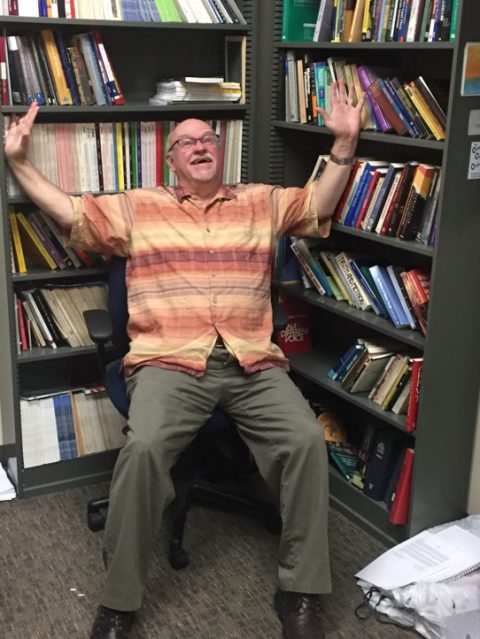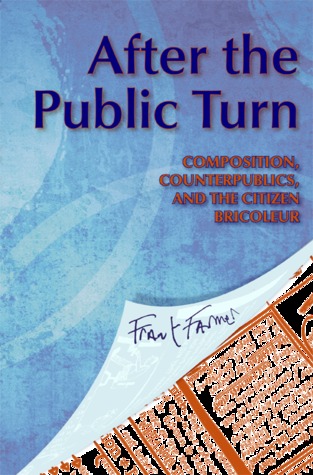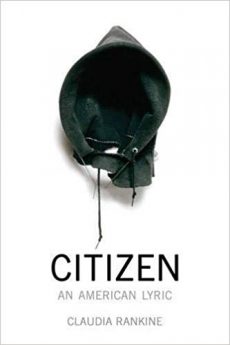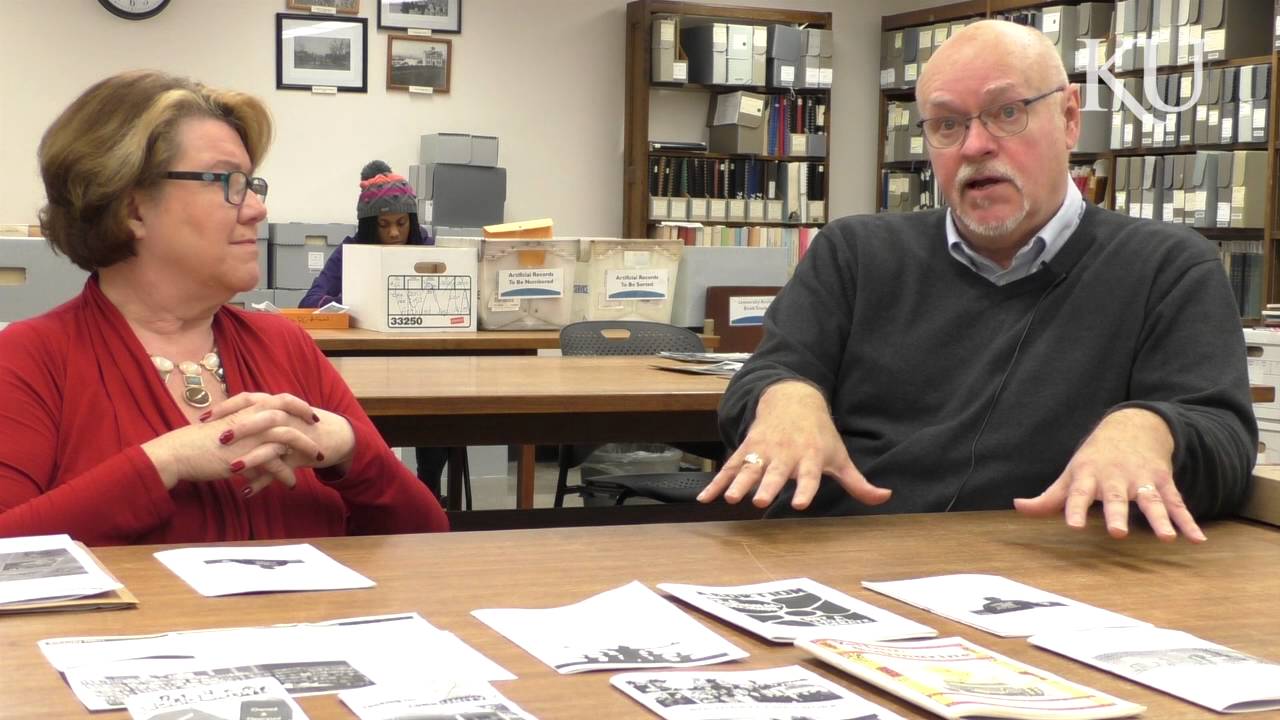This content is being reviewed in light of recent changes to federal guidance.
Counterpublics, Public Intellectuals, and Exodusters: An Interview with Frank Farmer (Part I)
We are pleased to present this two-part interview with Frank Farmer, a leading figure in Composition Studies and Rhetoric who recently retired from KU after joining the English faculty in 2000. Among many topics covered in this conversation, Farmer discusses one of his most influential books, After the Public Turn: Composition, Counterpublics and the Citizen Bricoleur (2013), and the idea of “counterpublics” in depth. This interview has been edited for length and clarity, but you may read the full interview here.

Part I. Writing as Making and the Circulation Turn
Peace: Has your definition of the term “counterpublics” changed in any sense since the publication of After the Public Turn? You mentioned there was a definitional ambiguity around this term. So, has it become clearer?
Farmer: It has, indeed, because counterpublics, in composition scholarship anyway, have begun to receive increased attention. When I wrote that book, there had been some scholarship in composition devoted to inquiries into counterpublics, but not a whole lot. And part of the reason for writing the book was to make the case that counterpublics are something we need to look at more closely. My central example, as you know, is zine culture, but there are other examples too. If you go back three decades, Nancy Fraser looks at feminist subaltern counterpublics. And Michael Warner is primarily concerned with queer counterpublics. I chose to examine alternative culture as a counterpublic, specifically of those folks who make zines. But there’s been very interesting work with other counterpublics as that concept gets filtered through a variety of community literacy projects. More recently, scholars have been investigating the emergence of digital counterpublics, and what that could possibly mean. My sense is that, while there’s hardly been a deluge of new interest in counterpublics, it has definitely increased since the time of my book’s publication. I like to think my book contributed to this increased attention, but I don’t know that to be the case. But there are encouraging signs. One piece I read recently dealt with Black Muslim feminist counterpublics online, and the dangers, as well as the benefits, for those who belong to that counterpublic, so….

Peace: At the beginning, you talk a lot about turns. We always talk about turns in composition. The digital turn, for example. So, you say the public turn is not subsumed by the cultural turn. Do you think turns are just subsumed under other turns, or these turns connected to a bigger picture?
Farmer: That’s such an interesting metaphor or characterization for how disciplines progress, and it goes way back, long before composition’s celebrated social turn, which is the most famous in our own disciplinary history. It goes back, in my mind anyway, to Richard Rorty’s linguistic turn in philosophy, where philosophers turned their attention to language in ways that have proven to be productive. But beyond that, and insofar as composition goes, the most momentous turn since the social turn of the 1980’s was composition’s public turn. My point about subsuming is that we are wrong to think that one turn simply replaces another. We cannot simply assert that, “Oh, that was the social turn; now we’re doing the public turn; and now we’re doing the cultural turn, and now the digital turn,” etc. Turns, in other words, simply mark shifts in emphasis. New turns do not announce the death of previous turns. Turns are imbricated, layered, complicated.
The most recent turn I’ve come across is the apocalyptic turn, and honestly, we seem to need the turning metaphor as a way of explaining new ideas and trends that turn up, so to speak. I would say, and I think you might agree, that we have a new materialist turn underway. We also have a turn toward circulation studies right now. So, there are many, turns out there. But, once again, they don’t substitute or replace one another. They accumulate with their distinctions intact; that’s probably the best way to put it.
Peace: Nice, accumulation. Also, you talk about public and private, and how some scholars don’t believe in the private sphere anymore. Could you talk more about that? You question the view that rhetoric has always been public.
Farmer: Yes, I think that there have always been non-public rhetorics. I believe that such rhetorics are typically manifested in everyday exchanges and conversations, in the things we say to one another to get our way, you know, all of the taken-for-granted ways that rhetoric is a part of everyday life. And so I had to stand up for the private sphere as well. And by “private” I don’t refer to the sphere of free enterprise or to the unrestrained pursuit of capital. By private, I mean that we have an interpersonal sphere, a family sphere, a friendship sphere, a social media sphere, and so on. I guess I’m too much of a structuralist to believe that a public sphere can exist without a private sphere. If everything is public, then nothing is public. Even though my work is centrally concerned with the public sphere, I believe a private sphere—or rather, spheres—actually exist and that they ought to be honored.
Peace: You use de Certeau and Levi Strauss to talk about bricolage, the citizen bricoleur in particular, and how the citizen is simultaneously resistant and constructive. You also mentioned that the intellectual activist as well as being unsung, but they’re doing all these things with construction to be legitimate and serviceable. What is the connection to your passion for zines?

Farmer: Working backwards from your question. I see what zinesters and likeminded others do as a kind of citizenship through texts, a handmade citizenship. I want to challenge the usual notion of citizenship as eminently respectable. When you think of the connotations of that word “citizen,” I mean, who cannot like citizens? Citizens do obviously important work, whether they participate in their local Rotary Club, or School Board, or Voter Registration Drives. But citizenship is not always so nice and decorous, and it is not the same for everyone. Claudine Rankin’s work, Citizen is a profound reminder that citizenship is something far more than a legal status, and that it is certainly not experienced the same way for everyone who rightly bears the title of citizen. In any number of everyday ways, citizenship rights can be routinely denied to American citizens, especially African-American citizens. What’s more, there are many people who do the work of democracy, even though that work is not always recognized, or approved of in official ways. I was trying to expand the idea of citizenship to include work done by people who are not always traditionally regarded in a favorable light. I was trying to make the case here that zinesters are one such sort of citizen, the citizen bricoleur. They make publics, or counterpublics, through self-published texts that embrace a politics that is, at once, both personal and issue oriented. They offer a different way of being in the world, a different model of what a citizen is or might be. And at the risk of overgeneralization, most would regard their lives as their best arguments.
Peace: Great, and you talk about queer zines. Black zines. Feminist zines. People who are trying to fight in the sense for their identity on the margins. So, could you talk about that a little more in the context of counterpublics, and people who are fighting on the margins in regard to bricolage. I wanted to see the connection between those two things because bricolage is like working with what one has, even if the creation isn’t leading anyplace initially. I feel like that is a connection for fighting for their identities.

Image courtesy of KU News Service.
Farmer: Good, yes. I think the key point I was trying to make there is that we are so habituated to thinking of “the public” as already in place, intact. We are born into “the public.” What we are are less comfortable with is thinking that publics can be made. That’s why there is a connection between bricolage and zine culture because bricolage is the art of improvisational making, and the reason that I talk about de Certeau and Levi Strauss is because these are two thinkers who recognize that bricolage has a larger, cultural significance than simply “making stuff”—you know, repurposing and remixing, making new things out of what’s handy. Right? Bricolage is more than that, and these thinkers see it as having significance that goes beyond the simple act of making. They see the relevance of bricolage to the construction of certain sorts of social or cultural formations. And that’s what I think zinesters do in the circulation of a certain kind of text, They craft an identity, a subculture, a community, and yes, a public—or more precisely, a counterpublic.
Peace: I know you’ve also talked about the “circulation turn” in class, but what is it about counterpublics in particular that’s heavily dependent on circulation.
Farmer: To begin with the obvious, there are numerous counterpublics, and those counterpublics have different ways of circulating texts—so much so that circulation itself becomes a text. How texts move, how they get distributed in the culture at large is inextricably related to counterpublic discourses. I can speak to the discourse that I know best which is zines How do people find them? Or maybe the question should be, how do they find welcome readers? I already mentioned zine libraries and zine special collections. There is also the burgeoning phenomenon of zine festivals in most of the major cities in the US. There are also trading and retail sites for zines online, usually called distros—centers or distribution hubs. There’s one here in Lansing, Kansas, in fact, Pioneer’s Press. And of course, there remain old fashioned swapping activities via the USPS. There is also a common practice among zinesters called “shopdropping.” The idea is to secretly drop your zine off at a bus station, diner, retail outlet, or any place where it might ambush a likely reader with its unexpected presence. Recall that very famous phrase in Warner that says, “Run it up the flagpole and see who salutes.” That’s a very different take on audience than the ones you and I are most familiar with. It’s not exactly audience addressed nor is it exactly audience invoked. It is a conception of audience wholly dependent on our understanding of the manner in which texts circulate.
For more information on Frank Farmer’s work, visit https://english.ku.edu/frank-farmer.
Check back for the conclusion to this two-part interview with Frank Farmer.
June 2019

Christopher Peace is a doctoral student of rhetoric and composition at the University of Kansas. Some of his academic interests include African American folklore, myth and rituals, ecocomposition, and the rhetoric of place and space. At HBW he is a member of the Black Book Interactive Project and Black Literary Suite teams.